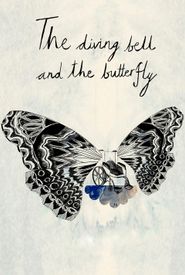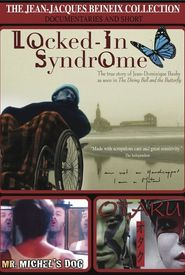Jean-Dominique Bauby, a celebrated French journalist and editor of Elle magazine, experienced a devastating and life-altering event in 1995, which resulted in a rare and highly debilitating condition known as locked-in syndrome. This catastrophic occurrence, which had a profound impact on his life, left him almost completely paralyzed, with the sole exception being his left eyelid, which remained the only facial muscle that responded to his will, a remarkable and extraordinary phenomenon that allowed him to communicate in a unique and limited way.
As the days turned into weeks, Jean-Dominique Bauby dedicated himself to the painstaking process of conveying his innermost thoughts and emotions, pouring his heart and soul into the composition of his memoir, The Diving Bell and the Butterfly. This monumental achievement was made possible through a laborious and time-consuming process that demanded his devoted assistant to recite the alphabet with precision and clarity, while Bauby would meticulously blink in response, selecting the precise letter that corresponded to his intended message.
Through this extraordinary display of unwavering determination and unshakeable resilience, Bauby was able to transcend the limitations imposed by his condition and create a profoundly moving and thought-provoking book that masterfully captures the essence of his experiences. This rare and intimate glimpse into the life of an individual living with a condition that is frequently misinterpreted and underrepresented serves as a powerful testament to the human spirit's capacity for creativity, perseverance, and self-expression.
Bauby's remarkable achievement is a testament to the human capacity for adaptability and the power of the human spirit to overcome even the most daunting challenges. His memoir, The Diving Bell and the Butterfly, is a poignant and powerful exploration of the human experience, offering a unique and intimate perspective on the complexities and nuances of living with a condition that is often misunderstood and underrepresented.
Through his writing, Bauby is able to convey the full range of emotions and experiences that accompany living with a condition that is frequently characterized by its limitations and challenges. His memoir is a powerful testament to the human spirit's capacity for creativity, perseverance, and self-expression, and serves as a powerful reminder of the importance of empathy, understanding, and compassion in our interactions with others.
Bauby's remarkable achievement is a testament to the power of the human spirit to overcome even the most daunting challenges, and serves as a powerful reminder of the importance of empathy, understanding, and compassion in our interactions with others. His memoir, The Diving Bell and the Butterfly, is a poignant and powerful exploration of the human experience, offering a unique and intimate perspective on the complexities and nuances of living with a condition that is often misunderstood and underrepresented.
Jean-Dominique Bauby, a French journalist and author, whose life was marked by a profound sense of curiosity and a passion for storytelling.
Born on July 5, 1952, in Paris, France, Bauby's early years were shaped by his love for words and his desire to communicate with the world around him. He began his writing career as a young man, working as a journalist for various publications, including Elle magazine.
Throughout his life, Bauby's writing was characterized by its wit, humor, and introspection. He wrote about a wide range of topics, from politics and culture to personal struggles and relationships. His writing was always deeply personal, yet accessible and engaging to a broad audience.
In 1995, Bauby's life took a dramatic turn when he suffered a massive stroke that left him with a condition known as "locked-in syndrome." This condition rendered him unable to move or communicate verbally, except for the occasional blinking of his left eyelid.
Despite these challenges, Bauby refused to give up. Using a system of blinking to communicate with his assistants, he began to write his memoir, "The Diving Bell and the Butterfly." The book, which took him nine months to complete, is a powerful and moving account of his experiences with locked-in syndrome.
Published in 1997, "The Diving Bell and the Butterfly" became a bestseller and was translated into numerous languages. The book has been widely praised for its unique perspective on the human experience and its ability to convey the complexities of the human mind.
Bauby's work has also been recognized with numerous awards and accolades, including the Prix Médicis, the Prix Jean-Jacques Rousseau, and the Prix du Meilleur Livre Étranger.
Throughout his life, Bauby's writing was characterized by its wit, humor, and introspection. He wrote about a wide range of topics, from politics and culture to personal struggles and relationships. His writing was always deeply personal, yet accessible and engaging to a broad audience.
In addition to his writing, Bauby was also known for his love of art and his appreciation for the beauty of the world around him. He was a passionate collector of art and antiques, and his home in Paris was filled with works by artists such as Picasso and Matisse.
Bauby's life was marked by both tragedy and triumph. Despite the challenges he faced, he remained a force of nature, always seeking to communicate and connect with others. His story is a testament to the power of the human spirit and the importance of never giving up.
Jean-Dominique Bauby's life was brutally curtailed, his existence cruelly truncated just a brief, fleeting period following the release of his seminal, pioneering literary work, a masterpiece that would forever leave an indelible mark on the world, captivating and enlightening people from every corner of the earth, shedding light on the intricate, multifaceted, and often daunting realities of living with locked-in syndrome, a condition that poses a formidable challenge to those who are afflicted by it.
Jean-Dominique Bauby's life may have been tragically short, but the remarkable story of his extraordinary experiences has left an indelible mark on our comprehension of the human condition, highlighting the remarkable capacity for resilience, hope, and creativity that exists within each individual, even in the face of overwhelming adversity and hardship.























